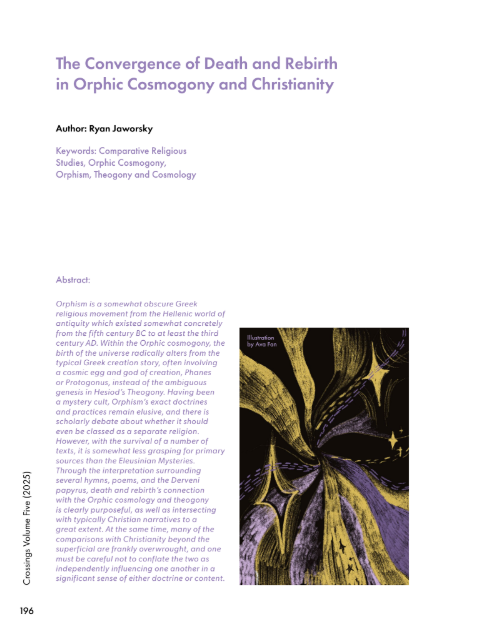The Convergence of Death and Rebirth in Orphic Cosmogony and Christianity
DOI:
https://doi.org/10.29173/crossings336Keywords:
Comparative Religious Studies, Orphic Cosmogony, Orphism, Theogony and CosmologyAbstract
Orphism is a somewhat obscure Greek religious movement from the Hellenic world of antiquity which existed somewhat concretely from the fifth century BC to at least the third century AD. Within the Orphic cosmogony, the birth of the universe radically alters from the typical Greek creation story, often involving a cosmic egg and god of creation, Phanes or Protogonus, instead of the ambiguous genesis in Hesiod’s Theogony. Having been a mystery cult, Orphism’s exact doctrines and practices remain elusive, and there is scholarly debate about whether it should even be classed as a separate religion. However, with the survival of a number of texts, it is somewhat less grasping for primary sources than the Eleusinian Mysteries. Through the interpretation surrounding several hymns, poems, and the Derveni papyrus, death and rebirth’s connection with the Orphic cosmology and theogony is clearly purposeful, as well as intersecting with typically Christian narratives to a great extent. At the same time, many of the comparisons with Christianity beyond the superficial are frankly overwrought, and one must be careful not to conflate the two as independently influencing one another in a significant sense of either doctrine or content.

Downloads
Published
Issue
Section
License
Copyright (c) 2025 Ryan Jaworsky

This work is licensed under a Creative Commons Attribution 4.0 International License.

